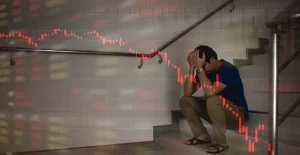- About
- Offerings
- Tools
- Pricing
- Partner
- GyanHub
- Resources

If the stock markets interest you or if you have consumed news or other stock market-related content, you have probably stumbled on terms like futures and options (F&O).

If you’ve recently heard of a currency swap agreement and are curious about how they work, this article will help. First, let’s start by mentioning what are currency swaps.

When you trade derivatives like futures or options, margin money refers to the amount of money you deposit with the broker in order to open a position.

Trading in the financial market may become a daily routine for some individuals. Often, people grow accustomed to stock market investing.

If you are reading about derivatives, there’s a good chance that you have heard about indicators like the moving average and RSI (relative strength index).

Beginners may find stock trading confusing and unclear. However, if you are looking to invest, you need to understand the instrument and the different investing strategies.

The idea of implied volatility is crucial while trading options. It’s a gauge of how likely it is that the underlying asset will move, changing the market price of the option.

In the Indian stock market, a rollover meaning is the process of carrying forward the open positions in a futures or options contract from the current month to the next month.

Investors sentiments rule the majority of the financial landscape. The economic environment, market stability, and global headwinds play on the mind of investors continuously and influence their sentiments.

If you have been learning about the stock market, you may have heard many investors label futures and options as risky assets. They are not wrong; however, it’s no secret that some of the most renowned investors

The new-age trader is always curious to learn about and trade in any new type of securities. Traders use derivatives instruments for hedging to reduce the risk of their existing trade.

There’s a good chance you may have stumbled on the term “derivatives” if you are invested in or looking forward to investing in the stock market.